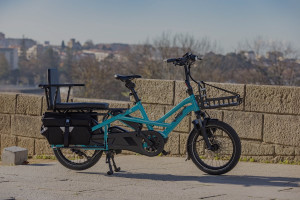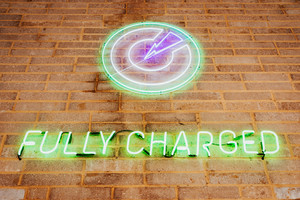The recent BBC Panorama documentary, 'E-Bikes: The Battle for Our Streets', has sparked important discussions about eBike safety and regulation in the UK. But with this conversation has come confusion - particularly around what makes an eBike legal and safe to ride.
Mark Sutton of Cycling Electric has published a detailed, minute-by-minute breakdown of how the programme not only failed to educate the public but actively misinformed its audience. You can read his analysis here..
As a specialist eBike retailer, Fully Charged is here to set the record straight. Let’s break down the key issues and ensure riders, regulators, and the wider public have the right information.
Distinguishing Legal eBikes from Illegal Variants
We agree with Adrian Chiles: illegal eBikes - especially those fitted with unauthorised throttles or modified to exceed legal speed limits - pose a real danger. These bikes lack essential safety features and don’t meet the standards required to be safely ridden on UK roads.
However, much of the recent media coverage has blurred the lines between these illegal, non-homologated, converted pedal bikes (there’s still no good name for these!) and the safe, fully regulated eBikes sold by retailers like Fully Charged.
This distinction is critical. Homologated eBikes, such as those powered by Bosch systems, are built to meet stringent safety standards. By reinforcing this clarity, we can help improve public understanding and push for smarter, more effective regulation - so that eBikes remain a safe and sustainable transport solution.
Bosch’s Commitment to Safety & Innovation
With over 12 years of experience, Bosch leads the eBike industry in innovation and safety, holding approximately a 50% market share in electric pedal-assist cycles (EPACs). Their cutting-edge technology - such as the Anti-lock Braking System (ABS) to prevent wheel lock-ups - sets the benchmark for safety.
Beyond rider protection, Bosch-powered eBikes are transforming urban mobility. Their systems enable high-performance cargo bikes, helping to replace vans for deliveries, reduce congestion, and cut emissions - offering a real alternative for school runs and local businesses.
What we can learn from European standards
The documentary highlights the challenges posed by illegal and modified electric bicycles, but what’s needed is a clearer, more structured regulatory approach - one that recognises the difference between unsafe conversions and legal, road-ready “eBikes”.
In Europe, regulations already provide this clarity. eBikes are categorised as ‘pedelecs’ (with a max speed of 25 km/h) and ‘speed pedelecs’ (with a maximum speed of 45 km/h). In both instances, throttles are not allowable and the motor assistance is only available whilst the pedals are turning.
In the UK, we have adopted the European EPAC (electric pedal assisted cycle) standard, but we have no official category for ‘speed pedelecs’, meaning that anything exceeding 25 km/h is classified differently and requires additional licensing.
Whether in Europe or the UK, the term “eBike” should be used exclusively for electric bikes which have been designed, manufactured and rigorously tested to stringent quality and safety standards. A bicycle which has been modified with the addition of a battery and motor to be electric is by definition not an eBike - and it is almost certainly these, favoured by gig-economy riders for being cheap and fast, which are causing the lion share of issues highlighted in the documentary.
The UK should take note: better categorisation would mean clearer rules for consumers, more effective enforcement, and ultimately, safer streets.
Fully Charged’s Commitment to Safety & Compliance
At Fully Charged, we stand for safe, sustainable eBikes that meet the highest industry standards. We only stock fully compliant, high-quality models - ensuring our customers ride legally, responsibly, and with confidence.
eBikes have the power to transform how we move, cutting congestion, reducing emissions, and making everyday journeys easier. Let’s focus on the real issue - smarter regulation and better enforcement - so that legal eBikes can continue to be a force for good.
Impact on the eBike Industry
Once again, irresponsible journalism has dealt an unfair blow to the eBike industry. This follows a string of challenges, from rising cycle thefts to concerns over lithium battery fires - issues that are almost exclusively linked to unregulated conversion kits, not legal eBikes.
As an industry committed to cleaner, more sustainable transport, it’s frustrating to see misinformation continue to overshadow the real benefits of eBikes. Instead of recognising the role they play in reducing congestion, pollution, and reliance on cars, reports like this only create unnecessary barriers for riders, businesses, and communities.
If you believe in fair and accurate journalism, we need your support. Following the Bicycle Association’s recent letter to the BBC, we’ve created a simple complaint template to help you submit your own in support of Fully Charged and the wider eBike industry. You can access the template here.
The more voices, the greater the impact. Let’s set the record straight and advocate for safe, legal, and responsible eBiking.
Want to stay up to date with the latest eBike news, insights, and exclusive offers? Sign up for the Fully Charged newsletter and be part of the movement for safer, smarter, and more sustainable transport.




